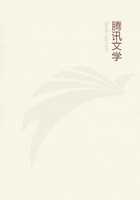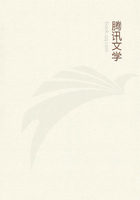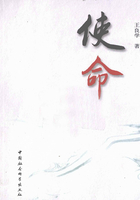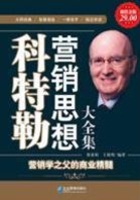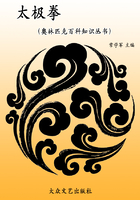But of all who thought it possible to construct a State, the greatest beyond all comparison was Machiavelli.He treats existing forces as living and active, takes a large and accurate view of alternative possibilities, and seeks to mislead neither himself nor others.No man could be freer from vanity or ostentation; indeed, he does not write for the public, but either for princes and administrators or for personal friends.The danger for him does not lie in an affectation of genius or in a false order of ideas, but rather in a powerful imagination which he evidently controls with difficulty.The objectivity of his political Judgement is sometimes appalling in its sincerity; but it is the sign of a time of no ordinary need and peril, when it was a hard matter to believe in right, or to credit others with just dealing Virtuous indignation at his expense is thrown away on us, who have seen in what sense political morality is understood by the statesmen of our own century.Machiavelli was at all events able to forget himself in his cause.In truth, although his writing s, with the exception of very few words, are altogether destitute of enthusiasm, and although the Florentines themselves treated him at last as a criminal, he was a patriot in the fullest meaning of the word.But free as he was, like most of his contemporaries, in speech and morals, the welfare of the State was yet his first and last thought.
His most complete program for the construction of a new political system at Florence is set forth in the memorial to Leo X, composed after the death of the younger Lorenzo Medici, Duke of Urbino (d.
1519), to whom he had dedicated his 'Prince.' The State was by that time in extremities and utterly corrupt, and the remedies proposed are not always morally justifiable; but it is most interesting to see how he hopes to set up the republic in the form of a moderate democracy, as heiress to the Medici.A more ingenious scheme of concessions to the Pope, to the Pope's various adherents, and to the different Florentine interests, cannot be imagined; we might fancy ourselves looking into the works of a clock.Principles, observations, comparisons, political forecasts, and the like are to be found in numbers in the 'Discorsi,'
among them flashes of wonderful insight.He recognizes, for example, the law of a continuous though not uniform development in republican institutions, and requires the constitution to be flexible and capable of change, as the only means of dispensing with bloodshed and banishments.For a like reason, in order to guard against private violence and foreign interference--'the death of all freedom'--he wishes to see introduced a judicial procedure ('accusa') against hated citizens, in place of which Florence had hitherto had nothing but the court of scandal.With a masterly hand the tardy and involuntary decisions are characterized which at critical moments play so important a part in republican States.Once, it is true, he is misled by his imagination and the pressure of events into unqualified praise of the people, which chooses its officers, he says, better than any prince, and which can be cured of its errors by 'good advice.' With regard to the Government of Tuscany, he has no doubt that it belongs to his native city, and maintains, in a special 'Discorso' that the reconquest of Pisa is a question of life or death; he deplores that Arezzo, after the rebellion of 1502, was not razed to the ground; he admits in general that Italian republics must be allowed to expand freely and add to their territory in order to enjoy peace at home, and not to be themselves attacked by others, but declares that Florence had un at the wrong end, and from the first made deadly Pisa, Lucca, and Siena, while Pistoia, 'treated like a brother,' had voluntarily submitted to her.
It would be unreasonable to draw a parallel between the few other republics which still existed in the fifteenth century and this unique city--the most important workshop of the Italian, and indeed of the modern European spirit.Siena suffered from the gravest organic maladies, and its relative prosperity in art and industry must not mislead us on this point.Aeneas Sylvius looks with longing from his native town over to the 'merry' German imperial cities, where life is embittered by no confiscations of land and goods, by no arbitrary officials, and by no political factions.Genoa scarcely comes within range of our task, as before the time of Andrea Doria it took almost no part in the Renaissance.
Indeed, the inhabitant of the Riviera was proverbial among Italians for his contempt of all higher culture.Party conflicts here assumed so fierce a char- acter, and disturbed so violently the whole course of life, that we can hardly understand how, after so many revolutions and invasions, the Genoese ever contrived to return to an endurable condition.Perhaps it was owing to the fact that all who took part in public affairs were at the same time almost without exception active men of business.The example of Genoa shows in a striking manner with what insecurity wealth and vast commerce, and with what internal disorder the possession of distant colonies, are compatible.
Foreign Policy As the majority of the Italian States were in their internal constitution works of art, that is, the fruit of reflection and careful adaptation, so was their relation to one another and to foreign countries also a work of art.That nearly all of them were the result of recent usurpations, was a fact which exercised as fatal an influence in their foreign as in their internal policy.Not one of them recognized another without reserve; the same play of chance which had helped to found and consolidate one dynasty might upset another.Nor was it always a matter of choice with the despot whether to keep quiet or not.The necessity of movement and aggrandizement is common to all illegitimate powers.Thus Italy became the scene of a 'foreign policy'

